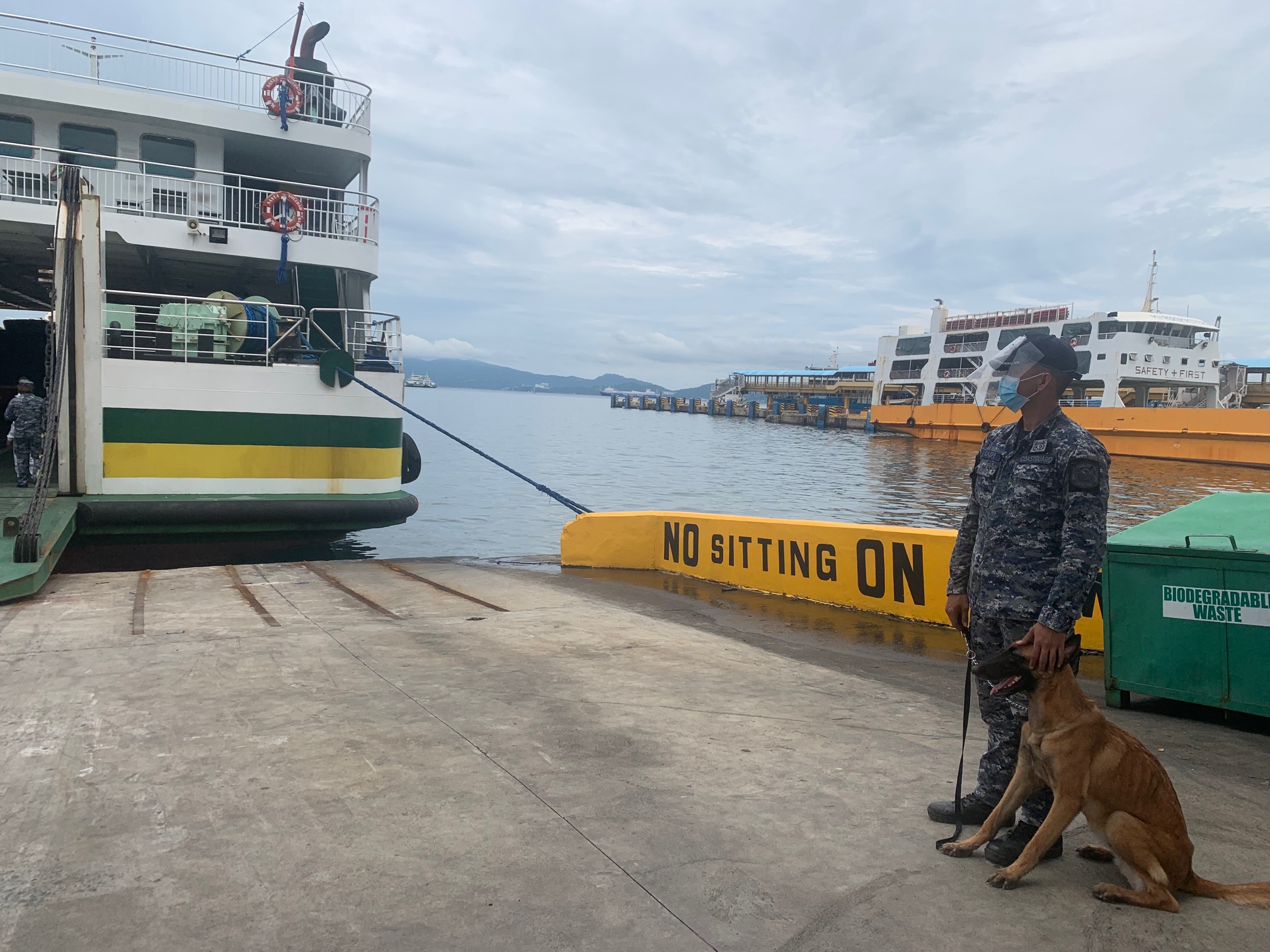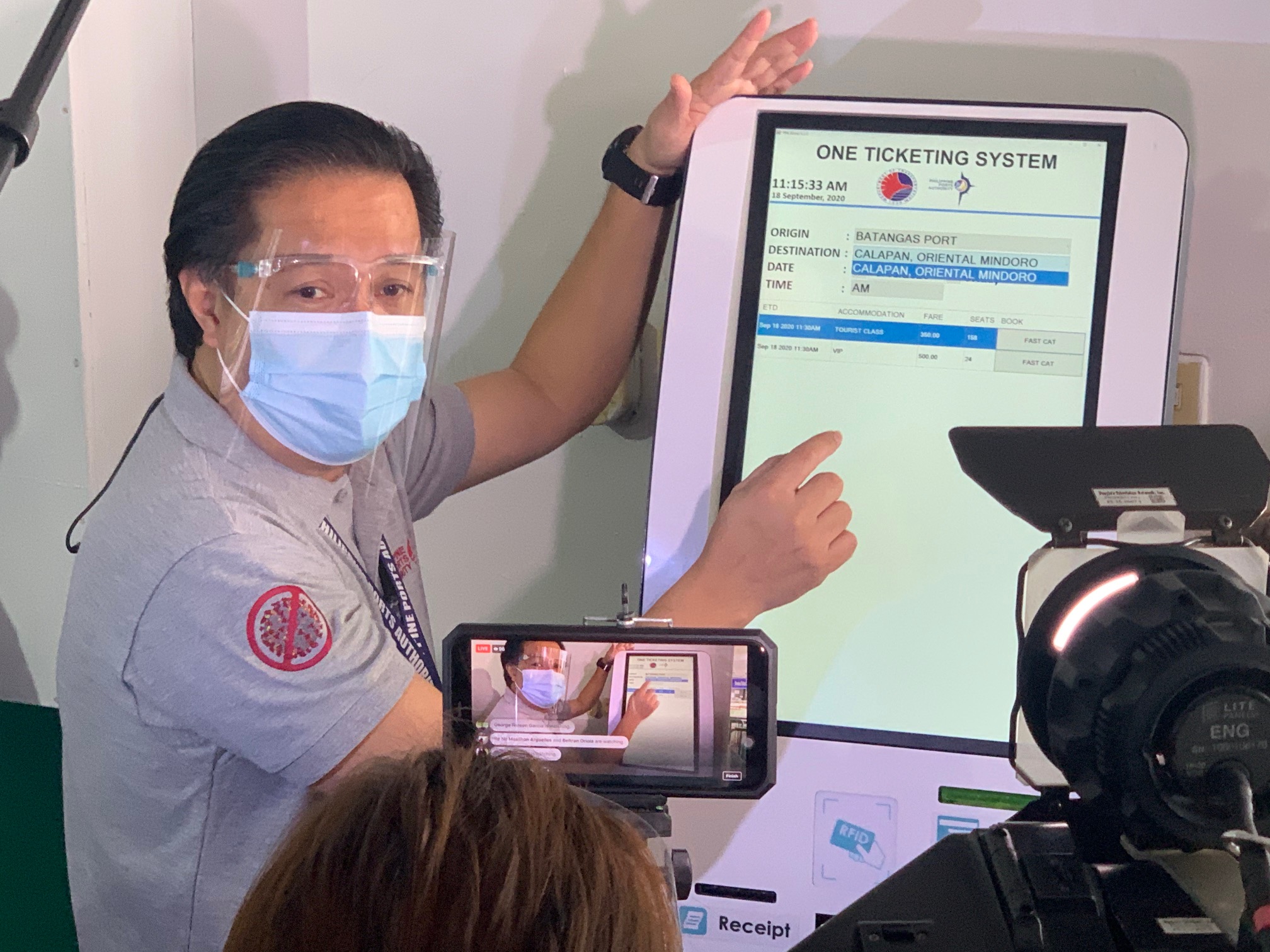‘Contactless’ ticket sale eyed for PH ports

TOO QUIET. The normally busy Batangas international seaport is without its usual noise and passenger traffic on Friday, with commercial trips still suspended. Only cargo vessels and boats ferrying returning residents can use the port. The national government has yet to decide when regular trips can resume. —MARICAR CINCO
BATANGAS CITY — The government aims to upgrade the ticketing system across Philippine ports in a bid to modernize the cheapest and most accessible transportation between major islands in the country.
Should the project materialize, boat passengers, normally traveling between islands and from the provinces to the country’s capital and who could not afford the more expensive domestic air travel, could have the same “experience and convenience” at least in booking their seats, said Philippine Ports Authority (PPA) General Manager Jay Santiago.
The project is also meant to address issues of overloading, a cause of major maritime accidents in the past, and end ticket scalping or the unauthorized ticket sale by as much as triple the price during peak seasons.
The PPA and Department of Transportation officials conducted a test of the Unified Electronic System Ticketing on Friday using a demo machine placed in Batangas City, a major seaport, and another at the Calapan City port in Oriental Mindoro province.
The machine, similar to booking kiosks at the airports, allows a passenger to purchase a ticket without having to interact with a human vendor.
Santiago said replacing ticket sellers with the machines would reduce the operational costs of shipping companies, while displaced workers could be absorbed into the port’s help desks to assist passengers who are technologically incapable.
2021 rollout
Santiago said the government was set to bid out the project this year and aimed to roll it out across 80 passenger and cargo ports by 2021.
He did not provide a figure of the project, saying it is still at the “proof of concept” stage.
PPA Assistant General Manager Elmer Nonnatus Cadano said the project had been in the pipeline before the coronavirus pandemic and now fits the “new normal” in public transportation to prevent virus transmission.
Aside from the kiosks, passengers could prebook their trips using an online application. The PPA also plans to put ticket machines at provincial bus stations for passengers traveling on buses loaded on roll-off, roll-on vessels.
At the Batangas port, alone, from which 29 shipping lines operate, the PPA said passenger traffic reaches 600,000 every peak season, like All Souls’ Day or Lent.
An identification card is a requirement for the electronic booking, which Santiago hoped people, specially in the provinces, could secure at the village level.

TEST Philippine Ports Authority General Manager Jay Santiago tests on Friday a demo machine of the electronic ticketing system for sea travel passengers at the port of Batangas City. —MARICAR CINCO
Contact trace
The PPA is also launching next week an online application that generates QR codes for every person entering a port facility called Trace. This is meant to ease contact tracing in case of a virus infection but Santiago said there has not been any case of transmission from boat ticket sales.
Regular commercial travel has since been suspended after provinces imposed community lockdowns due to the pandemic. Only cargo vessels and trips ferrying locally stranded individuals and government-authorized personnel are allowed.
Santiago said there should be no distinction between people’s access to mass transportation, specially against those who could afford less.
“It’s the role of the government to provide them that [same] convenience,” he said.